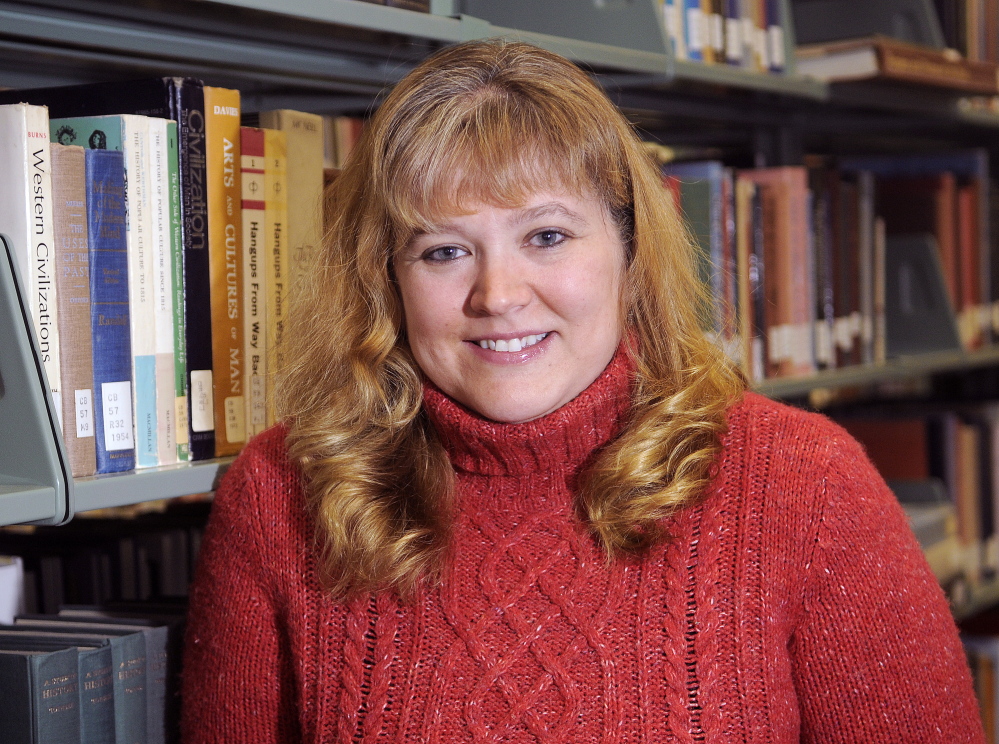AUGUSTA — Two decades ago, Jennifer Kilgore was lured out of college early to work at a call center in Belfast. A family followed. By 2005, her job was eliminated.
In 2012, she began working to complete a bachelor’s degree in accounting at University of Maine at Augusta. She has never set foot in a UMA classroom, doing her coursework online. Now, she’s a year away from graduation, a milestone that she wasn’t sure would come years ago.
“It’s more than just a light-at-the-end-of-a-tunnel thing now,” said Kilgore, 38, of Skowhegan.
The Kennebec Valley Chamber of Commerce will give UMA, on its 50th anniversary, one of two Special Service awards at their annual ceremony on Jan. 23 at the Augusta Civic Center. The Kennebec Journal is a member of the chamber and a sponsor of the event.
UMA, which has campuses in Augusta and Bangor and its University College system providing online access to courses from the University of Maine System’s seven universities statewide, has long been tailored toward serving older, non-traditional students such as Kilgore, with 66 percent of its 4,700 students aged 25 and older as of fall 2014 compared to just 36 percent of the 30,000 students system-wide.
“We’ve gotten very good at it,” said Glenn Cummings, UMA’s interim president, “and it also happens to be exactly what Maine needs right now.”
But UMA is also moving to attract out-of-state students, particularly to its architecture and aviation programs. In November, the University of Maine System board of trustees voted to allow UMA to issue a request for qualifications to developers interested in building and running a 70-student residence hall for an investment cost of between $4 million and $5 million, largely to attract students to those programs. The architecture program is housed in a downtown Augusta building, while the aviation program is done in partnership with Maine Instrument Flight at the Augusta State Airport.
Peter Thompson, the chamber’s executive director who also serves on UMA’s Board of Visitors, called the university crucial to central Maine’s economy.
“It’s just been fascinating to see the school grow,” he said.
Thompson called the university’s presence a boon to central Maine’s economy. Data from the Maine Department of Labor says that 81 percent of UMA’s 1,800 graduates between 2009 and 2011 had jobs in Maine between six months and 18 months of graduation, excluding self-employed people and federal employees. System-wide, that number was 72 percent.
Kilgore said her professors are “excellent in their flexibility” with online students, and that has allowed her to work part-time jobs to help pay her way through college and spend time with her family. After she finishes her degree, she’s planning to enter an online master’s program in business administration at the University of Maine in Orono before becoming an accountant.
“The timing fell really into place with me in my life,” she said.
Michael Shepherd — 370-7652
Twitter: @mikeshepherdme
Send questions/comments to the editors.



